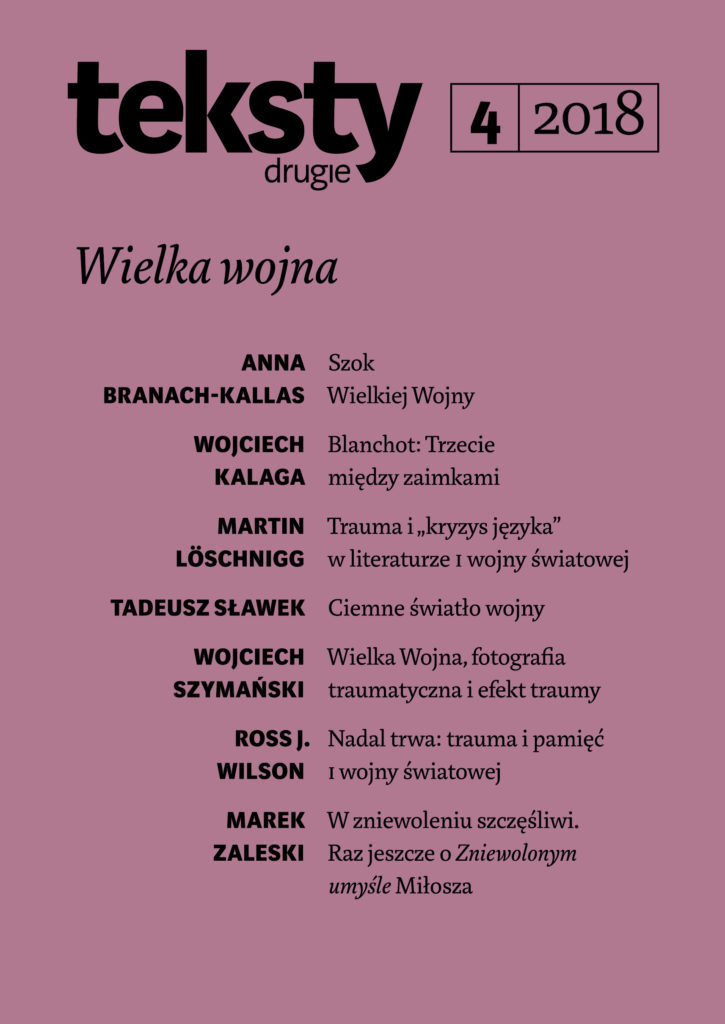Niewysłowiona wojna. Trauma i „kryzys języka” w angielskiej i niemieckiej literaturze pierwszej wojny światowej
Lacking Words for War: Trauma and the ‘Crisis of Language’ in English and German Literature about World War I
Author(s): Martin LöschniggSubject(s): Cultural history, Poetry, Studies of Literature, Novel, Pre-WW I & WW I (1900 -1919), Hermeneutics
Published by: Instytut Badań Literackich Polskiej Akademii Nauk
Keywords: First World War literature; trauma; incommunicability; crisis of language; modernity;
Summary/Abstract: Löschnigg investigates a widespread topos in literary representations of World War I, namely the idea that the ‘true’ nature of the war experience could not be expressed and, above all, that it could not be communicated to civilians. Drawing on English and German examples – especially works by poets Wilfred Owen and August Stramm and by novelist Edlef Köppen – he analyses this topos in different genres. He also demonstrates how it reflects the representational impasse emphasized by trauma theory as well as the ‘crisis of language’ underlying (literary) modernity.
Journal: Teksty Drugie
- Issue Year: 2018
- Issue No: 4
- Page Range: 72-93
- Page Count: 22
- Language: Polish
- Content File-PDF

